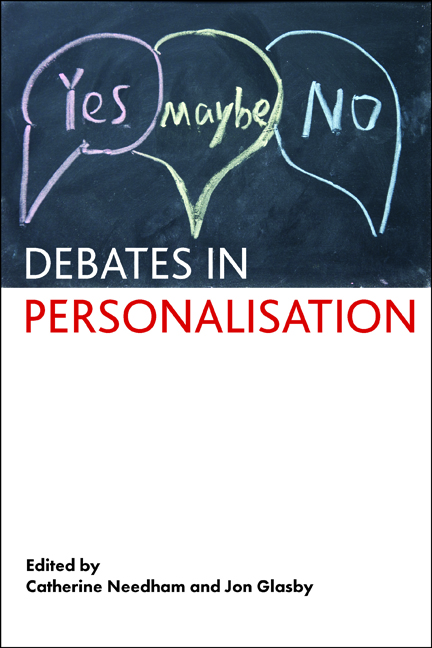Book contents
eighteen - After personalisation
Published online by Cambridge University Press: 04 March 2022
Summary
Every idea can be interpreted in different ways, but some ideas are more open to interpretation than others. Personalisation is particularly open-ended. Opinion differs about its authors, its purpose, its content, its impact and its real meaning.
In this chapter, I am going to write as one of those associated with its development. I will describe my own thinking, what happened as my ideas were put into practice and how those ideas were absorbed into the broader concept of personalisation. I will then try to draw some lessons about the challenges ahead.
This will not be an objective account of personalisation. It is an insider's account of personalisation, with all the loss of perspective that guarantees. The one advantage of my account will be to reveal those parts of the development of personalisation that are hidden to the disengaged observer.
Citizenship and community
One of the most common criticisms of personalisation is that it is a right-wing idea (Ferguson, 2007). This is a curious criticism, because it seems to imply that there is something right-wing about wanting to improve the legal and economic power of disabled people. But it is such a persistent criticism that it cannot simply be dismissed. And it is certainly true that some advocates of personalisation have seen it as a new kind of consumerism (Bartlett, 2009).
Personally, I do not think the left–right continuum is the only or the most useful way of thinking about public policy. In fact, the experience of disabled people provides powerful testimony for a different way of thinking (Duffy, 2010). Two ideas in particular seem to be missing from the simplified left–right battle:
• citizenship – that we should live, in all our diversity, as free and equal citizens; and
• community – that we should live together with a shared commitment to the world.
This different way of thinking offers a better way of understanding the lessons learned by disabled people over the past 200 years. For disabled people did not find that they were liberated by markets during the growth of industrialisation and the philosophy of liberalism in the 19th century.
- Type
- Chapter
- Information
- Debates in Personalisation , pp. 167 - 184Publisher: Bristol University PressPrint publication year: 2014

